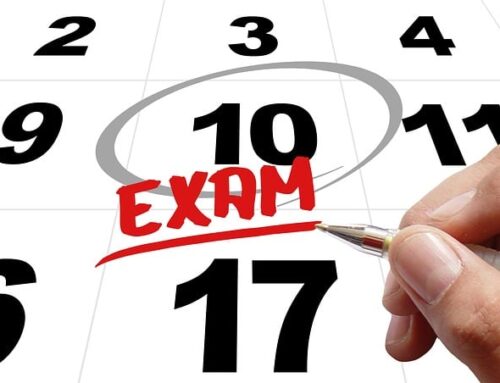Failing an exam can make you feel frustrated, but it’s important to know that staying frustrated isn’t helpful. In this article, we’ll discuss why frustration after exam failure is not a good thing and share some simple ways to cope with it effectively.
Why Frustration Is a Problem?
- Makes You Feel Bad: Frustration after failing an exam can make you feel sad, anxious, or even angry. These feelings can be tough to deal with and can affect your overall happiness.
- Hurts Your Learning: When you’re frustrated, it’s hard to learn from your mistakes. Instead of finding ways to do better next time, you might just feel upset about not doing well.
- Kills Your Motivation: Feeling frustrated can make you want to give up. You might lose interest in studying or think it’s not worth trying again.
- Blocks Problem-Solving: Frustration can make problems seem impossible to solve. Instead of finding solutions, you might keep thinking about how bad things are.
- Can Make You Sick: Being frustrated for a long time can make you feel physically unwell. You might get headaches, have trouble sleeping, or even get sick.
- Hurts Your Confidence: Continuously feeling frustrated can lower your self-confidence. You might start thinking you’re not good enough or that you’re a failure.
- Affects Relationships: Frustration can also affect your relationships with friends and family. You might become grumpy or distant, causing problems with the people you care about.
- Stops Growth: Failure is a part of learning. Frustration can prevent you from learning from your mistakes and growing as a person.
- Reduces Resilience: Resilience means bouncing back from tough times. Frustration can make it harder for you to bounce back when things don’t go your way.
- Hinders Future Success: If you stay frustrated without trying to improve, you might keep failing in the future. It’s essential to break this cycle.
Coping with Frustration Effectively
Now that we’ve explored why frustration from exam failure is detrimental, let’s turn our attention to constructive strategies for coping with this challenging emotional state:
- Acknowledge and Accept Emotions: The first step in dealing with frustration is to acknowledge and accept your emotions. Understand that it’s okay to feel frustrated after a setback. Recognizing and validating your emotions as a natural response to disappointment is crucial.
- Objective Self-Analysis: After experiencing failure, take a step back and engage in an objective self-analysis. Identify specific areas where you struggled and try to understand why you encountered difficulties. This process can help you pinpoint the root causes of your exam failure.
- Seek Feedback: If possible, seek feedback from your teacher or professor regarding your exam performance. Constructive feedback can provide valuable insights into your strengths and weaknesses, helping you understand where you need improvement.
- Develop a Plan for Improvement: Armed with insights from your self-analysis and feedback, create a concrete plan for improvement. Set realistic goals and establish a study schedule that focuses on the areas where you fell short. Having a clear plan can give you direction and purpose.
- Practice Self-Compassion: Be kind to yourself. Understand that everyone faces failures and setbacks in their academic journey. Treat yourself with the same compassion and understanding that you would offer to a friend in a similar situation.
- Embrace a Growth Mindset: Adopt a growth mindset, which is the belief that intelligence and abilities can be developed with effort and learning. Understand that failure is a stepping stone to success and an opportunity for growth. Embrace challenges as a means to improve.
- Stay Persistent: Frustration may tempt you to give up, but it’s essential to stay persistent. Don’t let the fear of failure deter you from pursuing your academic goals. Remember that progress often comes with persistence and resilience.
- Seek Support: If frustration becomes overwhelming, don’t hesitate to reach out to friends, family, or a counselor. Sharing your feelings and struggles can provide emotional relief and support.
- Practice Stress-Relief Techniques: Engage in stress-relief activities such as exercise, meditation, deep breathing, or pursuing hobbies you enjoy. These activities can help manage frustration and anxiety, promoting overall well-being.
- Visualize Success: Use visualization techniques to imagine yourself succeeding in future exams. Visualization can boost your confidence and motivation, providing a positive mindset for your academic journey.
Conclusion
In conclusion, while frustration after exam failure is a natural emotional response, it is not a productive or healthy state to linger in. The detrimental effects of frustration on mental health, motivation, and overall well-being are well-documented. Instead of succumbing to frustration, acknowledge your emotions, engage in objective self-analysis, and use the experience as an opportunity for growth and improvement.
By adopting a constructive approach to dealing with exam failure, you can transform setbacks into stepping stones toward future success. Embrace self-compassion, resilience, and a growth mindset to overcome challenges and achieve your academic goals. Remember that persistence, dedication, and a willingness to learn from failure can lead to lasting success in your educational journey.



Leave A Comment
You must be logged in to post a comment.